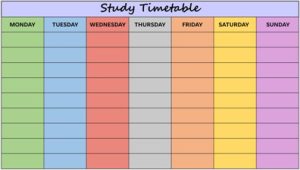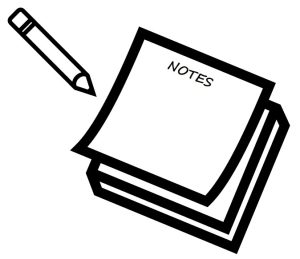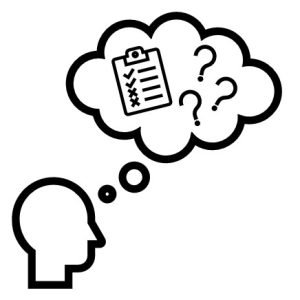Revision Techniques and Tips
by Ayesha Geekiyanage Don, with contributions from Safiya Zaloum, Khadija Kara and Thomas Yau
Revising for exams can be tricky, but there are many revision techniques that can help you. We’ve spoken to some of our medical and dental students, and found out their top tips for revising.
Timetables
 Timetables help to provide structure to your revision, breaking down overwhelming tasks into smaller manageable ones. Using your school timetable can be a great starting point for making your own timetables. We recommend starting with weekly timetables, which should include the material you want to cover and also how you will test yourself over time.
Timetables help to provide structure to your revision, breaking down overwhelming tasks into smaller manageable ones. Using your school timetable can be a great starting point for making your own timetables. We recommend starting with weekly timetables, which should include the material you want to cover and also how you will test yourself over time.
As exams draw closer, daily timetables can be more useful. With daily timetables, you may choose to include an hour-by-hour schedule, with structured breaks. Hour-by-hour schedules can however leave little room for flexibility, so a simpler to-do list might be more effective. Generally, timetables are excellent for structuring your revision, but make sure you find the right type for you.
Note Taking
Writing your own notes is a common revision method. It can allow you to bring together different resources but may take a while to make. When writing your own notes, we recommend referring to the specification for the course you are studying, which are usually freely available online. You may choose to either hand write your notes, which can be time-consuming but has been suggested to be memorised more readily, or type your notes, which can save you a lot of time but will require additional going over.
 Other revision techniques are flashcards and mind maps. In recent years, there has been a large increase to the use of flashcards by students. These can either be physical or digital, with many free apps available to make your own flashcards such as Brainscape or Quizlet. Mind-maps are also fantastic for revision, as they allow you to draw links between different topics.
Other revision techniques are flashcards and mind maps. In recent years, there has been a large increase to the use of flashcards by students. These can either be physical or digital, with many free apps available to make your own flashcards such as Brainscape or Quizlet. Mind-maps are also fantastic for revision, as they allow you to draw links between different topics.
Practice Questions
Knowing the content required for your exam is great, however, most exams will require you to apply what you know to new situations, not just write down what you know. This is a common change identified by students as they transition from GCSEs to A-Levels.
 To ace your exam technique, practice questions are a great place to start. Your revision should include practice questions from as early as possible. This gives you the time to go over as many as possible and learn from mistakes. Another great tip is to use a study buddy/group to mark each others practice questions, which can be especially useful for longer answer questions.
To ace your exam technique, practice questions are a great place to start. Your revision should include practice questions from as early as possible. This gives you the time to go over as many as possible and learn from mistakes. Another great tip is to use a study buddy/group to mark each others practice questions, which can be especially useful for longer answer questions.
Whether it’s end of topic texts, or end of year exams, we hope you can use some of these revision techniques and tips to help you out. Good luck!
